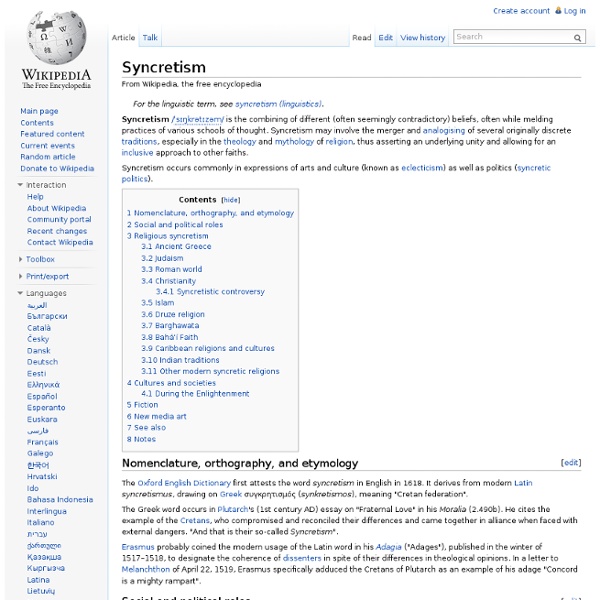Bible History Online Images and Resources for Biblical History
Censorship
Censorship is the suppression of speech or other public communication which may be considered objectionable, harmful, sensitive, politically incorrect or inconvenient as determined by a government, media outlet or other controlling body. Governments, private organizations and individuals may engage in censorship. When an author or other creator engages in censorship of his or her own works, it is called self-censorship. Censorship may be direct or it may be indirect, in which case it is called soft censorship. It occurs in a variety of different media, including speech, books, music, films, and other arts, the press, radio, television, and the Internet for a variety of reasons including national security, to control obscenity, child pornography, and hate speech, to protect children or other vulnerable groups, to promote or restrict political or religious views, and to prevent slander and libel. Direct censorship may or may not be legal, depending on the type, place, and content.
Digital Dead Sea Scrolls
Euphemism
A euphemism is a generally innocuous word or expression used in place of one that may be found offensive or suggest something unpleasant.[1] Some euphemisms are intended to amuse; while others use bland, inoffensive, and often misleading terms for things the user wishes to dissimulate or downplay. Euphemisms are used for dissimulation, to refer to taboo topics (such as disability, sex, excretion, and death) in a polite way, and to mask profanity.[2] The opposite of euphemism roughly equates to dysphemism. Euphemisms may be used to avoid words considered rude, while still conveying their meaning; words may be replaced by similar-sounding words, gentler words, or placeholders. Etymology[edit] The word euphemism comes from the Greek word εὐφημία (euphemia), meaning "the use of words of good omen", which in turn is derived from the Greek root-words eu (εὖ), "good, well" and pheme (φήμη) "glory, flattering speech, praise. Formation[edit] Phonetic modification[edit] Figures of speech[edit]
HolyBooks.com – download free ebooks
Paraconsistent logic
A paraconsistent logic is a logical system that attempts to deal with contradictions in a discriminating way. Alternatively, paraconsistent logic is the subfield of logic that is concerned with studying and developing paraconsistent (or "inconsistency-tolerant") systems of logic. Inconsistency-tolerant logics have been discussed since at least 1910 (and arguably much earlier, for example in the writings of Aristotle); however, the term paraconsistent ("beside the consistent") was not coined until 1976, by the Peruvian philosopher Francisco Miró Quesada.[1] Definition[edit] In classical logic (as well as intuitionistic logic and most other logics), contradictions entail everything. Which means: if P and its negation ¬P are both assumed to be true, then P is assumed to be true, from which it follows that at least one of the claims P and some other (arbitrary) claim A is true. Paraconsistent logics and classical logic[edit] Motivation[edit] Philosophy[edit] Tradeoff[edit] Example[edit] means that
Monisme
Un article de Wikipédia, l'encyclopédie libre. Monisme métaphysique - Définition[modifier | modifier le code] Le monisme s'oppose aussi à toutes les écoles philosophiques construites sur la multiplicité intrinsèque du réel, comme l'atomisme de Démocrite qui envisage le cosmos comme un assemblage de vide et d'une infinité d'atomes, atomes appartenant secondairement à un nombre fini de catégories atomiques de natures différentes. Concernant les fondamentaux métaphysiques du monisme, certains penseurs refusent de confondre monisme et non-dualité. Le grand théoricien de la non-dualité est l'indien Adi Shankara (IXe siècle) qui a construit toute une logique (au sens des logiciens) qui réfute le principe du tiers-exclu et qui récuse aussi tout usage du OU exclusif. En Occident, le monisme apparaît chez certains présocratiques comme Héraclite qui prétend que tout est Feu, ou comme Thalès qui affirme, lui que tout est Eau, ou encore comme Anaximandre pour lequel tout est Apeiron. D'aucuns[Qui ?]
Nondualism
Nondualism, also called non-duality, "points to the idea that the universe and all its multiplicity are ultimately expressions or appearances of one essential reality." It is a term and concept used to define various strands of religious and spiritual thought. Its origins are situated within the Buddhist tradition with its teaching of the two truths doctrine, the nonduality of the absolute and the relative, and the Yogacara notion of "pure consciousness" or "representation-only" (vijñapti-mātra). The term has more commonly become associated with the Advaita Vedanta tradition of Adi Shankara, which took over the Buddhis notion of pure consciousness and provided an orthodox hermeneutical basis for heterodox Buddhist phenomology. Advaita Vedanta states that there is no difference between Brahman and Ātman, a stance which is also reflected in other Indian traditions, such as Shiva Advaita and Kashmir Shaivism. Definitions[edit] Dictionary definitions of "nondualism" are scarce. Tantra[edit] 1.



